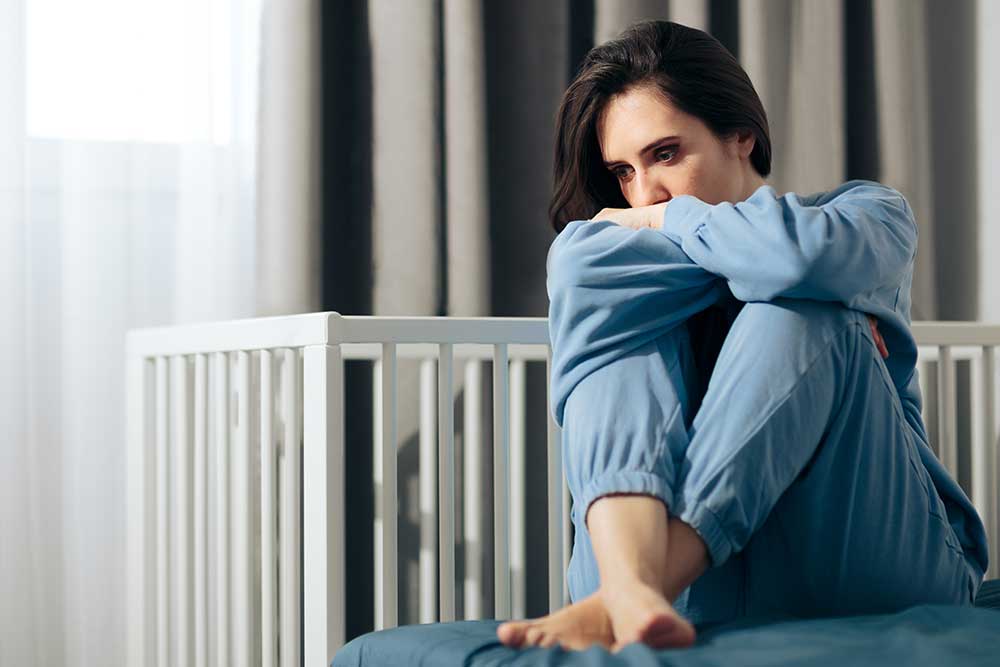
Beach House Recovery Center » Mental Health Disorders » PTSD » Birth PTSD Treatment

For many women, having a child is a joyous and life-changing moment. However, for others, it can lead to unexpected emotional trauma and lasting distress—especially if it involves complications, unplanned medical procedures, or other traumas.
Birth PTSD, also known as childbirth-related PTSD (CB-PTSD), can significantly affect mental health, relationships, and overall well-being. With the right care and support, recovery is within reach.
Continue reading to learn more about birth trauma PTSD, its causes, and how the evidence-based birth PTSD treatment options at Beach House can help you find healing and renewed joy in parenthood.
Birth-related post traumatic stress disorder (PTSD) is a mental health condition that can develop after a frightening, stressful, or distressing event related to giving birth.
Birth-related PTSD can affect those who experience or witness traumatic events during or after childbirth.
Emotional and psychological symptoms of birth-related PTSD may include:
Physical symptoms of birth trauma PTSD may include one or more of the following:
One in three women experience traumatic births, which increases their risk for postpartum depression (PPD) and PTSD. As a result, these women often struggle with depression, anxiety, stress, disconnection from their infants, and a lack of confidence in parental decision-making.
There are several factors that may contribute to birth trauma and birth PTSD, including obstetric interventions and maternal, infant, or postpartum complications. Here are a few examples:
Common triggers of birth trauma PTSD include:
A mental health professional at Beach House can diagnose birth-related PTSD if a person meets all criteria noted in the Diagnostic and Statistical Manual of Mental Disorders (DSM-5-TR) book by the American Psychiatric Association.
According to the DSM-5, “Childbirth is considered traumatic if there is a perceived threat to the life of the mother and/or the infant and/or if severe physical injury occurs.”
If you’re feeling overwhelmed after a difficult birth experience, assessments like the PTSD Checklist for DSM-5 (PCL-5) or the City Birth Trauma Scale (BiTS) can help identify what you’re going through. This scale aligns with DSM-5 criteria and covers key birth PTSD symptoms.
Your healthcare provider or mental health professional may prescribe one or more of the following medications along with birth-related PTSD treatment, depending on your unique symptoms:
Note: It is generally considered safe for breastfeeding women to use certain PTSD medications, but the choice depends on the severity of symptoms and the medication’s safety profile. Consult your physician or OB-GYN with questions or concerns about specific medications.
Your healthcare provider or mental health professional may recommend one or more of the following self-care strategies to support your long-term healing and wellness:
Recovering from birth-related PTSD requires support from a licensed mental health professional and a strong support system. Having your partner, family, and friends by your side can make all the difference in your recovery. These trusted individuals can provide the emotional support and practical assistance you need so you can focus on healing.
If you or a loved one is struggling with birth trauma PTSD symptoms, we can help. Our center for recovery is one of Florida’s most respected mental health treatment centers. We specialize in treating a range of adult mental and behavioral health disorders.
We offer expert, intensive intervention and personalized recovery plans for mothers seeking freedom from PTSD. Contact our admissions counselors to learn more about our birth PTSD recovery plans.
We accept most major insurance plans and can verify your benefits quickly and confidentially.
We’re committed to helping you access the care you need, our admissions counselors can guide you through your coverage options and available resources.





"*" indicates required fields